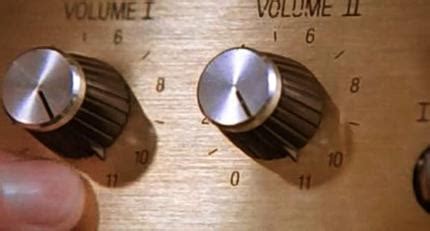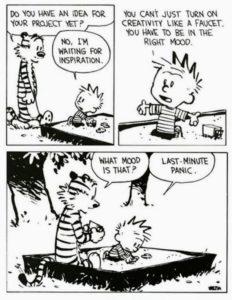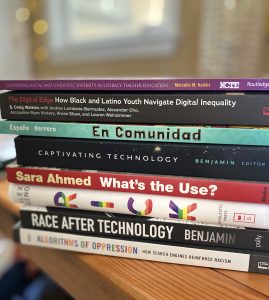
Schooled Literacies
Week 8-11: Oct 10-Nov 2
Schooled Literacies
 Oct 10: Read and annotate Baker-Bell’s “We Been Knowin: Toward an Antiracist Language & Literacy Education” in Perusall
Oct 10: Read and annotate Baker-Bell’s “We Been Knowin: Toward an Antiracist Language & Literacy Education” in Perusall- Oct 12: Prep for gathering data in our discipline. Panel of English colleagues joining us: TBA
- Oct 17-19: Collect data this week: assignments and syllabi from English classes.
- Oct 24: Prep for journal article.
- Oct 26: Brainstorm and draft paper due Wednesday
- Oct 31: asynchronous
- Nov 2: paper due: Schooled Literacies
For the next few weeks, we’ll gather data about the literacies that make up your academic lives and take a look at the literacies in our discipline and sub-disciplines of English. We’ll write and reflect on the literacies in our field.
Part I:
Data Collection: English Studies
Keep track of and collect all the reading and writing you do for a week in your English classes. Gather assignments, emails, reading, class projects: everything you are reading and writing across your classes for one week. We’ll think about the most useful ways to keep track and share (maybe a google folder?)
We’ll share these data as a class and see the kinds of trends we see across your data collection. What is expected of an English major in relation to reading and writing? Which literacies feel familiar and which feel new?
Part II:
 Reading and Writing as an English major
Reading and Writing as an English major
Then, we’ll spend some time looking at current research in the field of English, broadly defined.
Exploring academic journals
- Check out one of these journals (or another you know about), based on a sub-discipline of English you particularly identity with (or want to know more about).
- Composition, Rhetoric, Literacy:
- English Education
- Linguistics
- Creative Writing & Literary Editing & Publishing
- Literature
- Look over titles and abstracts from an issue or two. Then, choose a current article in that journal and read it. (You might choose an article to read in pairs or trios so you can discuss).
- Use one of the articles to support your analysis about literacies in English (the major, not the language).
Part III:
 Schooled Literacies paper
Schooled Literacies paper
Once we’ve gathered our data and resources, you’ll write a paper that shares what you’ve learned about the literacies of English from our analysis.
Perhaps start the paper by talking about why you chose to major in English, your area of emphasis, what you already know about the subdisciplines of English, and your goals for the future. Then, consider these questions to think about reading and writing in English:
- What kinds of reading and writing seem to matter in the subdisciplines of English? Looking over your data (your syllabi and assignments from English classes), what are you asked to do with reading and writing in your classes?
- What does the reading and writing you are asked to do in your classes have in common? Which literacies are different or contradictory? (you could cull from your experiences in course work AND from the faculty panels/notes).
- Which of the literacies are specific to a certain subdiscipline? Which literacies seem to only take place in coursework and not in the profession of your major? What did you learn about current ideas in your subdiscipline by looking at a journal in your field of study? (you could also cull from the faculty panel here too)
- Which literacies leave you feeling confident? Which literacies do you need to develop?
- You might conclude the paper by reflecting on what you’ve learned about reading and writing in our department so far.
Nov 2 (before class): Share paper with me as google doc (or link): kjaxon@mail.csuchico.edu (*NOTE: email slightly different for sharing in google than my regular email.)

 Website:
Website: